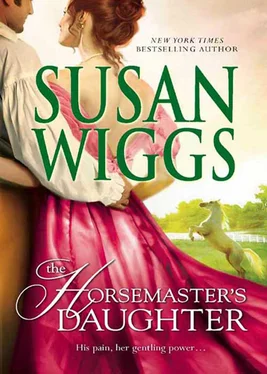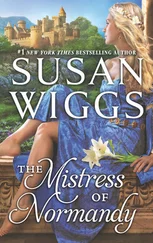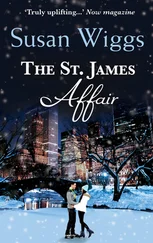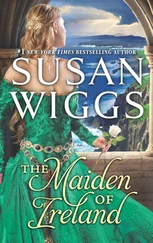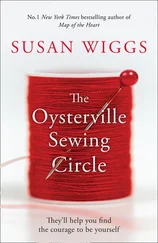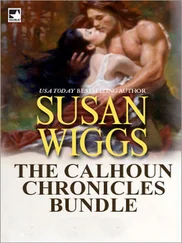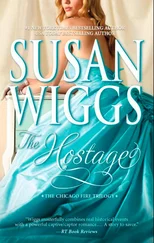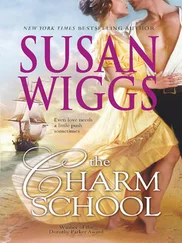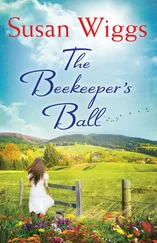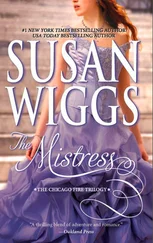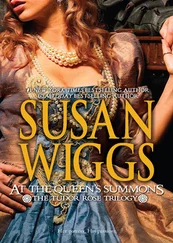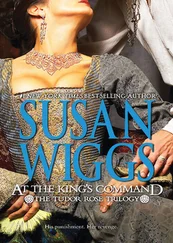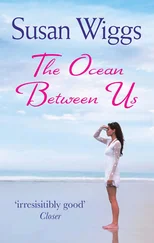It was. He had known this moment was coming. In preparation, he had lit himself with whiskey, but suddenly strong drink wasn’t enough.
He looped a deerskin sack of .44-40 cartridges to his belt, then stood for a moment at the window, staring out the wavy glass at the broad gardens of Albion. Dogwood and rhododendron grew profusely at the verges, though the flower beds had a weedy, untended look.
“You best get a move on,” said Nancy. “Miz Beaumont took the children off to lessons at Bonterre for the day, and you want this dirty business done ‘fore they get back.”
“I reckon I do.” He flinched, picturing his son Blue’s silent censure when the boy learned what had happened in his absence. Blue had suffered so much loss already, and here his own father was about to take something else from him.
A wave of self-loathing washed over Hunter. Earlier that morning, he had sat down to breakfast with the children, putting jam on Belinda’s biscuit and pouring the cream for Blue, pretending—God, always pretending—that things were right between them.
With her strange, unerring sense of direction, Nancy joined him at the window and caught hold of his arm. “I’m real sorry, son. I’m just as sorry as I can be,” she said, gently fingering a rip in the sleeve of his shirt.
“I know you are, honey.” He stared down at the dark, papery-dry hand, the knuckles gnarled and shiny with rheumatism. That hand had soothed his feverish brow when he was a baby and dried his little-boy tears. It had mended his breeches with a lightning flash of the needle, and, when the occasion warranted it, delivered a smack to his backside a time or two, though never without drawing him into a hug afterward.
And when he had signed the manumission papers to set her free, that trembling hand had cupped his cheek, her touch more eloquent than the words she could not summon.
Nancy’s mothering hand couldn’t soothe him now. His nervous fingers strayed to the slim hip flask in his pocket, but he didn’t take it out. Nothing could soothe him this morning.
“I’ll be back by and by, honey,” he said to Nancy, then stepped out on the veranda.
Setting his jaw, he jerked open the gate of the rifle and loaded the cartridges. Then he hitched back his shoulders and strode down the steps to the walkway. The brilliant Virginia morning mocked him with its bright promise. Thready high clouds veined the April sky, and sunlight flooded extravagantly down through the twisted live oaks of Albion. The long misty acres rose up into the sloping green hills.
At one time the tidewater plantation had been as busy as a small village. Tobacco fields had covered hundreds of acres; the cultivation and curing of the leaves had occupied hundreds of hands. Now everything had changed. All that remained were Hunter and his children, a small staff of misfits and a dream that was about to be shattered.
Not for the first time, he contemplated giving up, selling out. Would a prospective buyer notice the chipping paint on the soaring columns that flanked the entranceway? Would he see the brambles and creeper that encroached on the once-pristine lawn?
Would a buyer see the work and sweat that had gone into the riding hall, the round pen and lunging ring, the barns and paddocks and the only mile oval racing track in the county? Would the mares and foals in the hills show themselves? Would a stranger be dazzled by Albion’s wild promise, or disappointed by its failed glory?
He simply didn’t know. These days, he had no answers.
He sucked in a deep breath, tasting the cool green tang of the Spartina grass that fringed the marshes by the bay. The weight of the Winchester pressed insistently on his shoulder. His strides kicked up droplets of dew as he walked, dampening the toes of his scuffed riding boots. No matter, there would be no riding today.
A cluster of farm buildings lay in quiet morning shadow. A stone boat of thick planks laid over heavy runner beams had been brought out in readiness for the dead body.
A high-pitched whinny broke the silence, and on the farthest hill to the west, the herd appeared, moving like a banner of silk across the spring meadows. No cart horses or farm plugs these, but Thoroughbreds. Against the green-draped landscape, they were magnificent and primal, their loping forms stretching into one entity, like a mythical beast, as they traversed the hill. As always, Hunter’s heart caught at the sight of them.
At one time the racehorses that had beggared his fortunes had also brought him true happiness. The enterprise was the beginning of his hope and the end to the troubles that had shadowed the years since he’d inherited Albion. But after Lacey’s death, he’d turned away from the dream, for a dream seemed too auspicious a thing to have when your world was falling apart.
Still, through everything, his affinity for the unusual horses remained a powerful force. Most days, “Hunter’s Folly” as the neighbors called them, were the only things in his world that made sense.
Putting two fingers to his lips, he loosed three shrill whistles. The lead stallion—once declared unridable, which was why Hunter rode him—broke away from the herd and headed down at an angle, answering the summons with his customary mixture of obedience and disdain. Hunter walked over to the fence and treated the horse to a piece of barley sugar. “There you are, Julius,” he said quietly. “How’s my old boy?”
From the time he was very young, and had no inkling of the troubles ahead of him, Hunter Calhoun had possessed a God-given way with racehorses—the more spirited, the better. The stallion called Julius had been his triumph, the most remarkable Thoroughbred Virginia had ever seen.
But Julius had run his course and could no longer race or stand stud. He finished his barley sugar and nudged at the pouch of cartridges on Hunter’s belt.
“That’s not for you,” Hunter said, stepping away from the fence. “Though Lord knows, some breeders would put you down since you no longer earn your keep.”
Julius lifted his big, dumb head in a nod and flapped his lips. Hunter tried to smile, but his mind lingered on less pleasant matters. He’d best not put this off any longer. With the rifle over his shoulder, he walked to the cluster of barns and arenas.
At first glance, the paddock appeared deserted. Just for a moment Hunter’s spirits lifted. Perhaps he didn’t have to do this at all. Perhaps it had all been a mistake, a horrible mistake—
A low rumble of rage came from the green darkness beneath a sweeping branch of live oak. In the shadows at the corner of the pen, a malevolent gleam flickered. Approaching the weathered cedar fence rails, Hunter pretended not to notice. He watched obliquely, and from a corner of his eye he saw the quivering of a filthy patch of hide, caked with mud and manure.
The nightmare lived yet.
He took a step closer to the paddock. If the beast stayed cornered, they wouldn’t have to drag it far to load the carcass onto the stone boat. If Hunter’s shot was true, there wouldn’t be too much of a mess.
And the shot would be true, for the bite of the morning air had evaporated every drop of whiskey Hunter had consumed. Icy sobriety overcame him. Nothing stood between him and the pain.
He should be swift, have done with it. But for some perverse reason he took his time, surrounded by the false serenity of the shady paddock and stables. No trace of the mare’s blood marred the sandy surface of the paddock. The crazed pacing of the stallion had kicked up the sand, covering over the stain.
Hunter squeezed his eyes shut, remembering the way the stallion had attacked the broodmare, racing toward her with his mouth wide open, sinking his teeth into her flank and hanging on like a mountain lion on the hunt. The deafening squeals of the mare had gone on and on, echoing across the flat water of the nearby bay, finally stopping when the mad stallion fought her to the ground, causing her foreleg to snap. Only by swinging six-foot bludgeons had Hunter and the grooms been able to beat the stallion off and back him into the paddock.
Читать дальше
